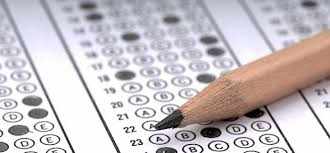
Bhubaneswar: The state is planning to start cadaveric organ transplant — in which organs are retrieved from brain-dead persons and transplanted into needy ones — by October this year.
Though the practice of harvesting the organs of brain-dead patients for transplant is slowly but surely picking up pace in the the rest of the country, Odisha is yet to catch up.
After the Centre on July 7 approved the Odisha State Organ and Transplant Organization (SOTTO), the state-level body to supervise the cadaver programme, Odisha has accelerated the pace to make it possible at the earliest.
Chittaranjan Kar, a nephrologist at SCB Medical College and Hospital and the nodal officer for the proposed cadaver programme, on Thursday said most of the prerequisites have been fulfilled. “Work for the SOTTO office space within SCB is on. The protocol for maintaining the donor registry and waiting list of recipients is ready. The administrative staff will be recruited soon. There will be complete readiness by September-end or early October. Depending on the availability of donor, the programme may take off any time after that,” he said.
Government sources said at least four hospitals in Odisha — government-run SCB and privately-run Apollo, Kalinga and AMRI — are doing kidney transplants using organs of living donors. The government is planning to notify them as organ retrieval and sharing centres and AIIMS Bhubaneswar (which is yet to start transplant) as a retrieving centre soon.
The health department is planning to convene a meeting of the administrators of these hospitals and doctors associated with transplant, in the third week of this month for the cadaver programme, the sources added.
Since only kidney and cornea transplants are done in Odisha at present, the SOTTO will coordinate with the Regional Organ and Transplant Organization Kolkata for transplant of other organs such as heart, lungs, liver and pancreas from brain dead people here, the sources said.
Sonamali Bag, director of medical education and training, said the process took time because of its sensitive nature. “Compared to a living donor, the procedure involved in brain-dead patients has to be done in an emergency situation. So every step has to be well-defined with no scope for confusion. We have come very close to starting it,” he said.
Datteswar Hota, team leader of the transplant programme at SCB, said the families of many brain- dead people, mainly road accident victims, are interested in donating the organs of their kin in their hour of grief. The move will help retrieve organs from such brain-dead patients.
T N Panda, who runs an NGO MOTHER ((Multi Organ Transplantation and Human & Educational Research), which promotes organ and body donation, said awareness initiatives for organ and body donation is not meaningful without cadaver transplant programme. “The sooner it starts, the better,” he added.
Though the practice of harvesting the organs of brain-dead patients for transplant is slowly but surely picking up pace in the the rest of the country, Odisha is yet to catch up.
After the Centre on July 7 approved the Odisha State Organ and Transplant Organization (SOTTO), the state-level body to supervise the cadaver programme, Odisha has accelerated the pace to make it possible at the earliest.
Chittaranjan Kar, a nephrologist at SCB Medical College and Hospital and the nodal officer for the proposed cadaver programme, on Thursday said most of the prerequisites have been fulfilled. “Work for the SOTTO office space within SCB is on. The protocol for maintaining the donor registry and waiting list of recipients is ready. The administrative staff will be recruited soon. There will be complete readiness by September-end or early October. Depending on the availability of donor, the programme may take off any time after that,” he said.
Government sources said at least four hospitals in Odisha — government-run SCB and privately-run Apollo, Kalinga and AMRI — are doing kidney transplants using organs of living donors. The government is planning to notify them as organ retrieval and sharing centres and AIIMS Bhubaneswar (which is yet to start transplant) as a retrieving centre soon.
The health department is planning to convene a meeting of the administrators of these hospitals and doctors associated with transplant, in the third week of this month for the cadaver programme, the sources added.
Since only kidney and cornea transplants are done in Odisha at present, the SOTTO will coordinate with the Regional Organ and Transplant Organization Kolkata for transplant of other organs such as heart, lungs, liver and pancreas from brain dead people here, the sources said.
Sonamali Bag, director of medical education and training, said the process took time because of its sensitive nature. “Compared to a living donor, the procedure involved in brain-dead patients has to be done in an emergency situation. So every step has to be well-defined with no scope for confusion. We have come very close to starting it,” he said.
Datteswar Hota, team leader of the transplant programme at SCB, said the families of many brain- dead people, mainly road accident victims, are interested in donating the organs of their kin in their hour of grief. The move will help retrieve organs from such brain-dead patients.
T N Panda, who runs an NGO MOTHER ((Multi Organ Transplantation and Human & Educational Research), which promotes organ and body donation, said awareness initiatives for organ and body donation is not meaningful without cadaver transplant programme. “The sooner it starts, the better,” he added.
Trending Topics
LATEST VIDEOS
City
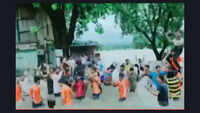 Karnataka floods: Locals dance on waterlogged National Highway at Yamagarni village in Belagavi
Karnataka floods: Locals dance on waterlogged National Highway at Yamagarni village in Belagavi 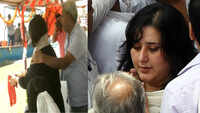 Hapur: Sushma Swaraj's daughter Bansuri immerses her mother's ashes in Ganga river
Hapur: Sushma Swaraj's daughter Bansuri immerses her mother's ashes in Ganga river 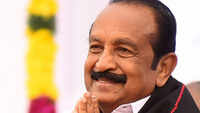 Want selfie with Vaiko, pay Rs 100
Want selfie with Vaiko, pay Rs 100 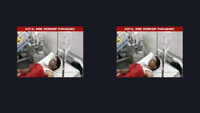 RSS worker brutally beaten up by 5 men in Kota for celebrating decision on article 370
RSS worker brutally beaten up by 5 men in Kota for celebrating decision on article 370
More from TOI
Navbharat Times
Featured Today in Travel
Quick Links
Lok Sabha Election Schedule 2019Lok Sabha Election NewsDelhi Capitals teamMI team 2019Rajasthan Royals 2019RCB team 2019Maharashtra Lok Sabha ConstituenciesBJP Candidate ListBJP List 2019 TamilnaduShiv Sena List 2019AP BJP List 2019Mamata BanerjeeBJP List 2019 MaharashtraPriyanka GandhiBJP List 2019 KarnatakaAMMK Candidate List 2019BJP List 2019 WBLok Sabha Elections in Tamil NaduBSP List 2019 UPNews in TamilLok Sabha Poll 2019Satta Matka 2018PM ModiMahagathbandhanNagpur BJP Candidate ListChandrababu NaiduTamil Nadu ElectionsUrmila MatondkarNews in TeluguMadras High CourtTejashwi YadavArvind KejriwalTejasvi SuryaPawan KalyanArvind KejriwalYogi AdityanathJaya PradaSatta King 2019Srinagar encounter
Get the app



